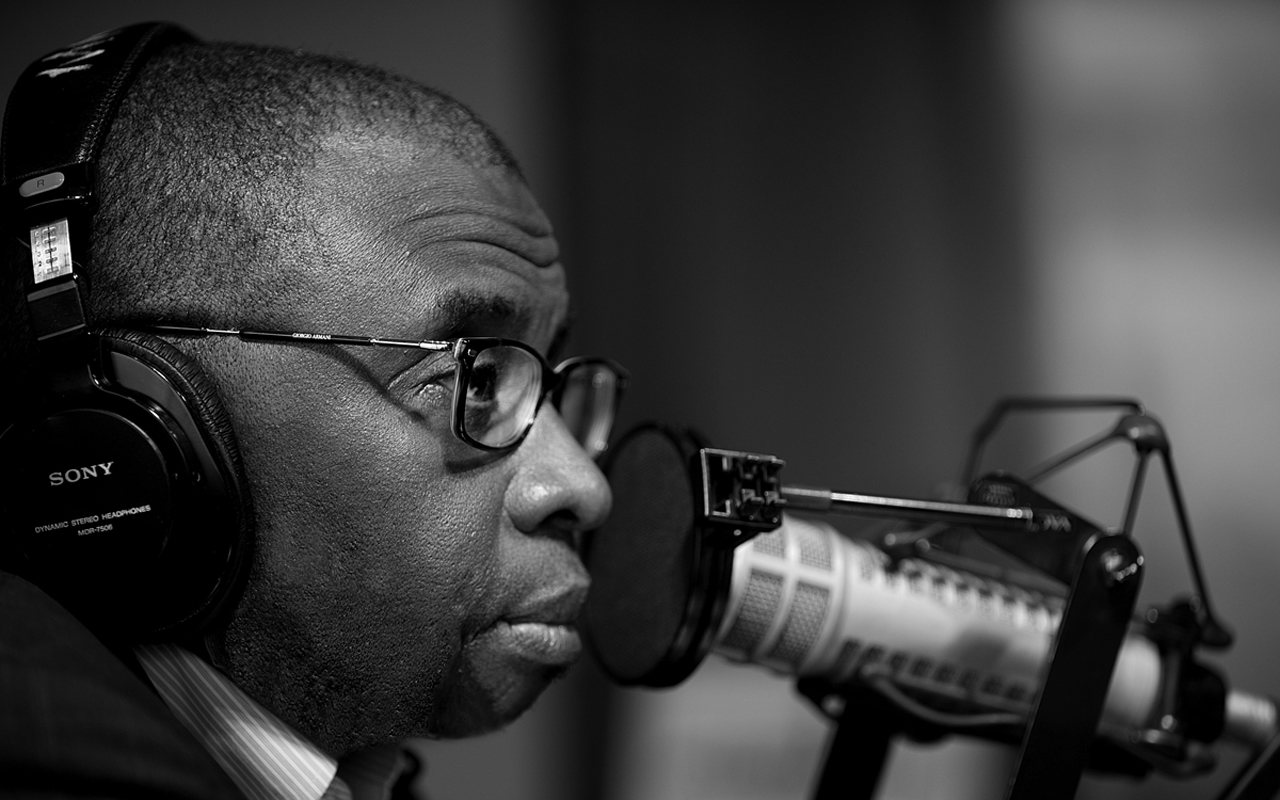
Dr. James Gore photo by Daniel Sheehan
Dr. James Gore wants us to know he’s been here. He’s here now. He’ll be here in the future. Gore wants us to know that jazz is here in Seattle. It’s been here. It will be here. Gore is Black and the CEO of Ariel Media, a marketing, research, media and consulting service organization. As an educator, Dr. Gore founded the Jackson Street Music Program, an experiential learning program which exposes youth to the arts and higher education.
“I appreciate it,” he says of the new momentum of the Black Lives Matter movement. “You gotta’ holler to make yourself heard,” he says. “Black folks should be allowed to tell their own stories.” He took note recently of Earshot Jazz’s new Statement of Anti-Racist Work. “I’m optimistic,” he says, of Earshot and Seattle’s music industry as a whole. What he wants is conversation now that BLM has opened up individuals and institutions like never before to openly discuss race and inherent racism. He doesn’t want tokenism. What he wants is a coming together of colleagues. He wants to be met as an equal. “I’m Black. I do jazz.”
That, he does. With Ariel Productions, he’s produced concerts for nearly three decades now, mostly in the Smooth Jazz category. It hasn’t been easy as a Black producer working primarily in white-led spaces. It’s difficult to get a toehold and be successful when the market is 6% African American. “Musicians just want to play,” Gore says though. “And audiences don’t care who they are so long as they can play.” Gore brings the players. He produces Jazz in the City each year. 2020 has been challenging with COVID-19 but such acts lined up this year have included Eugenie Jones, Kareem Kandi, Greta Matassa, and Josephine Howell. “I’m up against big local producers here,” he says. “But I compete. I work hard.”
Not only does he produce shows he helps those coming up in Seattle’s vibrant music scene. He founded the Jackson Street Music Program, offering free concert tickets to students enrolled in the program, backstage meet-and-greets with artists, and free lectures and seminars related to the music industry. “I go into a venue with these kids and we look at the backstage staff—the ushers and techs; the lighting and sound—where are the Black people?” He’s keen on seeing representation in these areas. “I’m proud of the fact that these kids can look up to me—a successful producer but we need to diversify backstage and on-stage.” He makes note that, currently, the only jazz station in the Seattle market—KNKX— does not have a Black on-air personality for the art which was birthed by Blacks. “We’re here,” he repeats.
That’s a major thrust of his program, giving students exposure and the tools needed to enter into these arenas. “The universal appeal of music can be used as an instrument to teach skills that may be valuable to youth throughout their personal and professional lives.” Gore’s Music Business Academy, part of the Jackson Street Music Program, is hosted on the campus of Seattle University (of which Gore is a triple graduate) and offers students a week of living and studying on-campus learning about the music industry.
Youth Air, another arm of his program, is a student-run radio show. It was created to foster Black youth to seek careers in arts management, entertainment law, and other under-represented professions. Maybe one of the students will be an on-air talent in Seattle.
“It’s extremely important to maintain African American culture in jazz in Seattle,” Gore says. It’s been maintained by African Americans in Seattle since the word go. Jackson Street was where it was at. Music could be heard most every night between 1st and 15th Avenue beginning in the early 1900s. The area would become one of the West Coast’s best places for jazz. Seattle helped launch the careers of Quincy Jones, Ray Charles, and Ernestine Anderson. Jackson Street clubs would also bring in world famous entertainers like Duke Ellington, Count Basie, and Louis Armstrong. Jazz clubs flourished up through the 1960s when the Civil Rights Movement took hold and rock ‘n’ roll rose in popularity, supplanting jazz.
Gore is here to remind us, however, that jazz hasn’t gone away. It’s here. It’s vibrant and alive. And he’s here right along with it.
–Jonathan Shipley